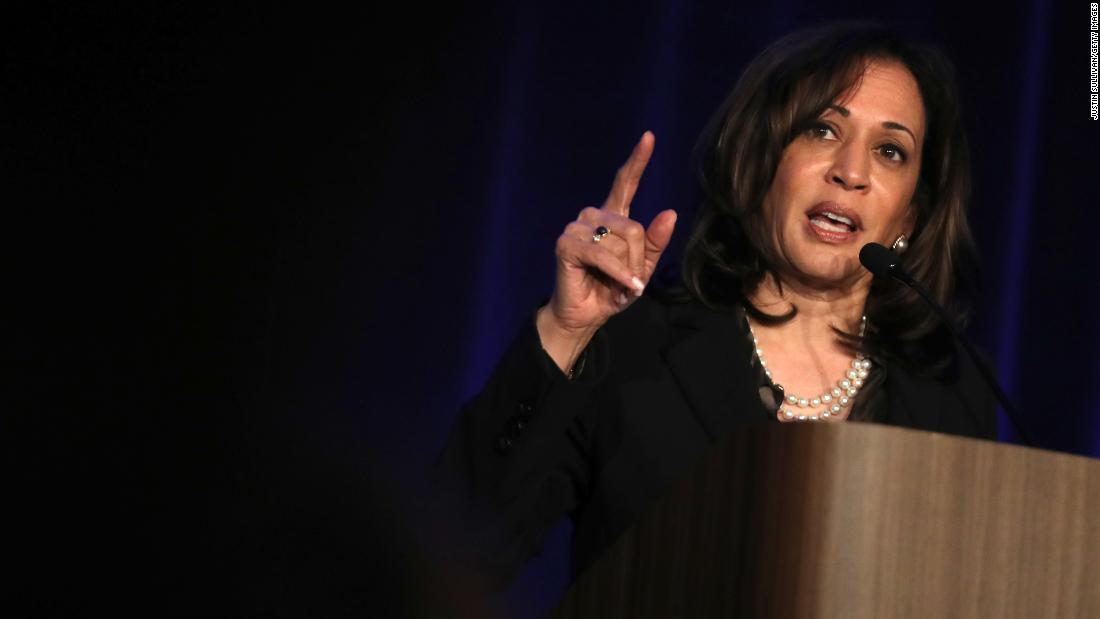
Harris pledged that, if elected President, she would create a preclearance requirement for "states and localities with a history of unconstitutionally restricting access to abortion," according to a fact sheet released by her campaign.
Her "Reproductive Rights Act" would shift the burden away from abortion providers who have to file suit against the states to stop new laws; instead, it would require states to prove their laws are constitutional.
States determined to have a history of restricting abortion access would need to obtain approval from Harris' Department of Justice before any abortion law or practice could be enacted, according to the policy sheet.
Earlier this month, Alabama passed a law that would ban abortion in nearly all circumstances, except for when the mother's life is in jeopardy. Signed into law just a day later, it is considered the nation's most restrictive abortion ban and makes it a felony for Alabama abortion providers to perform the procedure, with no exception for rape or incest. Under Harris' plan, a state like Alabama would likely be considered a state with a history of restricting abortion access, so the state would need to obtain DOJ approval before enacting its state's law.
"With Republicans pushing near-constant attacks on women's health across the country, passing federal legislation protecting abortion rights is important -- but the truth is that codifying Roe isn't enough," a Harris senior campaign official said.
The preclearance requirement in Harris' abortion policy is similar to the one created in the Voting Rights Act of 1965, known as section 5. The VRA preclearance requirement prohibited nine states and scores of municipalities determined to have a history of discriminatory practices from changing any voting laws without preapproval from the federal government.
In 2013, the Supreme Court determined that section 5 of was "outdated" and that the country had changed. Chief Justice John Roberts wrote in his majority opinion that Congress, using updated data, was free to impose federal oversight on states where voting rights were at risk. Congress has yet to agree where federal oversight is needed and has not passed updates to the Voting Rights Act.
Harris has been calling for a defense to Roe v. Wade, the landmark case that legalized abortion, on the campaign trail and in interviews with media.
"There is an attack on women's access to healthcare, there is no question," Harris told CNN in an interview last week. "I will always fight for a woman's right to make whatever decision she believes is in the best interest of her and her family and the government should not be in the business of taking those decisions away from women."
Harris' previous policy on equal pay followed a similar tact to her Reproductive Rights Act. Her equal pay policy makes the employer prove to the federal government that men and women are paid equally for equal work, instead of leaving it to a woman to file complaints against her employer. This policy also shifts the burden to the states and away from the abortion providers, who currently have to fight the new state laws in court.
Laurie Rubiner, former vice president of Planned Parenthood, called Harris plan "badly needed" from the provider standpoint.
"I think it's a very novel idea," Rubiner said. "What is happening right now is that states, and particularly these very anti-choice states, are able to pass all these laws and puts a tremendous onus on providers to challenge these laws."
No comments:
Post a Comment